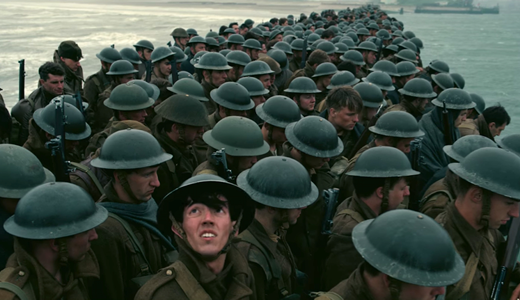This Christopher Nolan guy? Yeah, he can make a pretty good movie.
In the decade I’ve been working at Plugged In, I think I’ve reviewed almost all of his films, and they’ve all had a takeaway for me—something that, even if the movies themselves weren’t uniformly positive, I could point to and say, “That resonated with me.”
Inception took us into an unfolding, dreamlike world of provocative moral conundrums and decisions. Interstellar gave us a trippy fable hinged on the beauty and eternity of love. I literally wrote a book on Nolan’s The Dark Knight series and its complex, ultimately redemptive protagonist.
Now Nolan has moved from superheroes and science fiction into the realm of history, and some people are calling Dunkirk Nolan’s best work yet. It’s only July, and already its Oscar buzz is building.
Dunkirk is, indeed, a good film—great, even, if one can stomach the violence and a bit of language. And amid the movie’s harrowing setting (a desperate evacuation of mostly British troops during the early days of World War II), we see dozens of moments of bravery, heroism and sacrifice.
But I have to admit that, had I not read an interview with Christopher Nolan in Time, I might’ve missed one of the most important underlying elements of this story. When asked why he wanted to make a movie now, about events that took place nearly 80 years ago, he said this:
We live in an era where the virtue of individuality is very much overstated. The idea of communal responsibility and communal heroism and what can be achieved through community is unfashionable. Dunkirk is a very emotional story for me because it represents what’s being lost.
That struck me.
Nolan’s most successful movie, financially at least, is The Dark Knight. It’s about a flawed, solitary vigilante trying to save his beloved city from a madman. I dig Batman, and Nolan’s characterization of this do-gooding loner is, I think, the definitive depiction of this superhero.
But though he’s an iconic loner, Batman’s hardly alone. From John Wayne to John McClane, our movies are saturated with rugged individuals who work hard, do right and save the day alone. We Americans, especially, idolize those willing to go their own way, play by their own rules, buck the system (which is almost always corrupt and ineffective) and make whatever sacrifice is necessary to be a hero.
I don’t think there’s anything necessarily wrong with that. Classics ranging from High Noon to To Kill a Mockingbird, or modern hits like Wonder Woman, are about virtuous characters who, at some point, are forced to fight the good fight by themselves (or virtually so). And if we squint, we might see that this idea of a lone hero can even feel a bit biblical. Christ, after all, was deserted by even His closest companions and was crucified. Moses and Aaron likely didn’t bring along their own posse when they confronted Pharaoh. Daniel walked into the Lion’s Den alone. Sure, God was with all these biblical heroes, but God also is pretty clear that His ways are not the world’s: If we choose to walk in His light, we shouldn’t necessarily expect a lot of company.
But there’s a flip side to this cultural and biblical solitary hero, and one that’s equally biblical: We’re stronger as a team.
In Dunkirk, we certainly see moments of solitary heroism. Nolan’s movie focuses on individuals. But these individuals are all serving a greater, united purpose: to save the lives of as many soldiers as possible. They work as a team—interconnected, interdependent and indivisible. The fighter pilot knows that no matter how many German bombers he shoots down, he’s just one piece in a bigger effort. The civilian boat captain who risks his life and his son’s life in sailing to Dunkirk knows he can’t carry every soldier stranded on Dunkirk’s beach. But 20? 30, maybe? Yeah, that he can manage. And if lots of other captains are willing to make the same sacrifice, maybe something good will come of it.
I thought about that as I sat in a recent worship service, surrounded by hundreds of people, their voices raised in song. I imagined that service multiplied by thousands and millions—the Christians who’ll attend church this Sunday.
And I wondered … what would happen if all those Christians decided to be heroes? Decided to put their shoulders against some of society’s biggest rocks? What if they all volunteered? Marched for a worthy cause? Tithed?
Dunkirk reminds me of the power of people united in a worthy cause. It reminds me that heroism requires sacrifice. That nothing worthwhile is ever cheap.
Sure, we can’t all be fighter pilots. We can’t even all be boat captains. But we can help. We are all a part of the body of Christ, after all (1 Cor. 12: 12-27). And Dunkirk also reminds me that we can make a difference in lots of different ways.
We can’t all be John McClane or Atticus Finch or Batman. But we can still be heroes.






Recent Comments